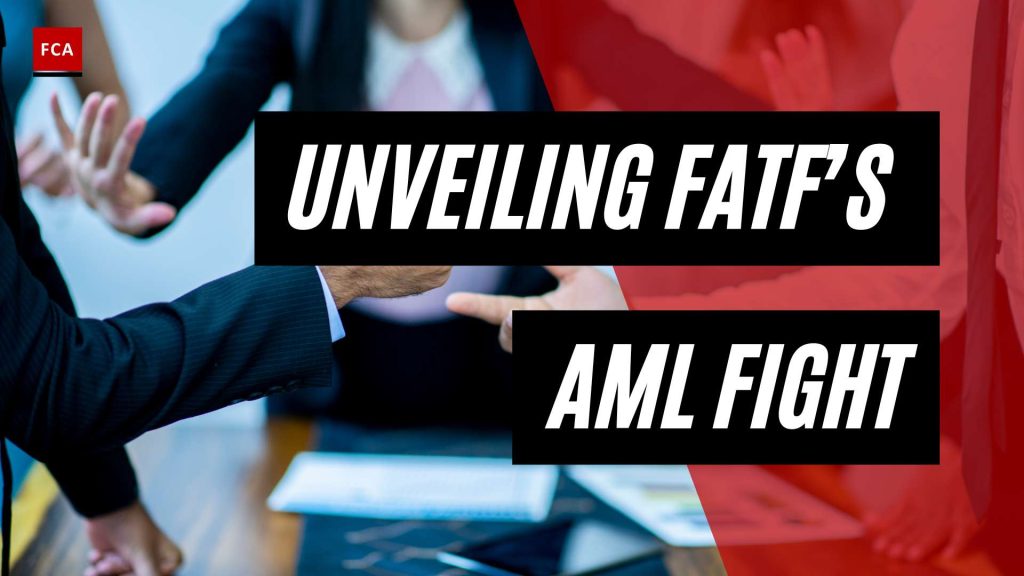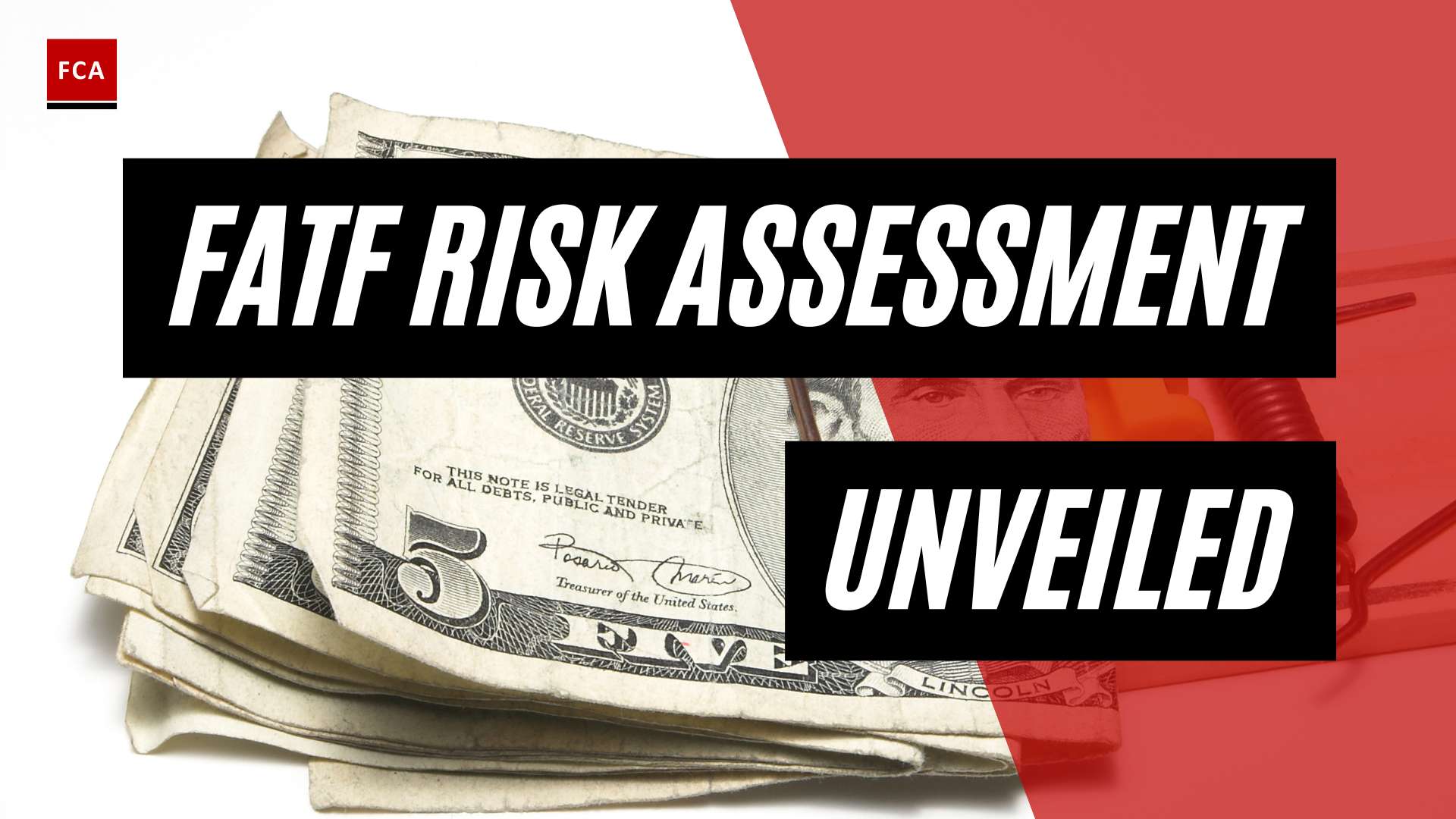Understanding the Financial Action Task Force (FATF)
To effectively combat money laundering, terrorist financing, and other related threats to the integrity of the international financial system, it is crucial to have a global framework in place. The Financial Action Task Force (FATF) serves as a key player in establishing and promoting such a framework. Let’s explore what the FATF is and its objectives.
What is the FATF?
The FATF, established in 1989, is an inter-governmental body comprising the Ministers of its member jurisdictions. Its primary role is to set standards and promote the effective implementation of legal, regulatory, and operational measures to combat money laundering, terrorist financing, and other threats to the integrity of the international financial system (FATF). It operates with the aim of protecting the integrity of the global financial system by preventing the misuse of financial systems for illicit activities.
Objectives of the FATF
The FATF has several key objectives that guide its work:
-
Setting Standards: One of the primary objectives of the FATF is to develop and promote international standards and best practices to combat money laundering, terrorist financing, and other financial crimes. These standards, known as the FATF Recommendations, provide a comprehensive framework for countries to follow in their efforts to combat financial crimes.
-
Promoting Implementation: The FATF works to ensure that its member jurisdictions effectively implement the FATF Recommendations. It encourages countries to adopt and enforce appropriate laws and regulations, establish robust systems for detecting and deterring financial crimes, and cooperate internationally to combat these threats.
-
Evaluating Effectiveness: The FATF evaluates the effectiveness of each country’s system in combating money laundering and terrorist financing. Through a process of mutual evaluations, the FATF assesses its member jurisdictions’ progress in implementing the FATF Recommendations. This evaluation process helps identify areas of improvement and encourages countries to enhance their anti-money laundering (AML) and counter-terrorist financing (CTF) measures.
By setting standards, promoting implementation, and evaluating effectiveness, the FATF plays a crucial role in strengthening global efforts to combat money laundering and terrorist financing. Its work helps establish a common framework for AML and CTF efforts globally and ensures that countries adhere to these standards.
To further strengthen global AML efforts, various international organizations and bodies, such as the International Monetary Fund (IMF), Financial Crimes Enforcement Network (FinCEN), World Bank Group, Office of Foreign Assets Control (OFAC), Basel Committee on Banking Supervision, Egmont Group, and Wolfsberg Group, collaborate with the FATF to strengthen the global AML framework. A comprehensive approach that combines international cooperation, adherence to standards, and ongoing assessment of progress is essential for effectively combating financial crimes and safeguarding the integrity of the international financial system.
The FATF Recommendations
The Financial Action Task Force (FATF) has developed a set of recommendations that serve as internationally endorsed global standards against money laundering and combating the financing of terrorism and proliferation of weapons of mass destruction. These recommendations provide guidance to countries in establishing and implementing effective anti-money laundering and counter-terrorist financing (AML/CFT) measures.
Overview of the FATF Recommendations
The FATF Recommendations were initially issued in 1990 and have since undergone updates to reflect developments in the field of AML/CFT. The most recent update was in 2012, which brought significant changes to the original 40 Recommendations. The evolution of the FATF Standards has been accompanied by an increase in the number of countries committing to its international standards and participating in mutual evaluations (FATF).
These recommendations are designed to provide a comprehensive framework for countries to develop and implement AML/CFT measures. They cover a wide range of areas related to preventing and detecting financial crimes, including customer due diligence, reporting of suspicious transactions, international cooperation, and the regulation of designated non-financial businesses and professions.
Evolution and Updates of the Recommendations
The FATF Recommendations have evolved over time to address emerging challenges in the global fight against money laundering and terrorist financing. The updates reflect advancements in the understanding of AML/CFT risks, as well as changes in international standards and best practices.
The 2012 update of the FATF Recommendations brought significant changes to the framework, including the introduction of a risk-based approach and the emphasis on the effectiveness of AML/CFT measures. These updates aimed to enhance the ability of countries to identify, assess, and mitigate the risks associated with money laundering and terrorist financing.
Key Areas Covered by the Recommendations
The FATF Recommendations cover a broad range of areas that are essential for effective AML/CFT measures. Some of the key areas addressed by the recommendations include:
-
Customer Due Diligence (CDD): These measures require financial institutions and designated non-financial businesses and professions to identify and verify the identity of their customers, understand the nature of their business relationships, and assess the risks associated with those relationships.
-
Record Keeping and Reporting of Suspicious Transactions: Financial institutions and designated non-financial businesses and professions are required to maintain records of transactions and report any suspicious activities that may be indicative of money laundering or terrorist financing.
-
International Cooperation: The recommendations emphasize the importance of international cooperation in the fight against money laundering and terrorist financing. Countries are encouraged to cooperate with each other through the exchange of information, mutual legal assistance, and the freezing and confiscation of assets.
-
Regulation and Supervision: The recommendations call for effective regulation and supervision of financial institutions and designated non-financial businesses and professions to ensure compliance with AML/CFT measures. This includes establishing competent authorities responsible for oversight and enforcement.
-
Risk-Based Approach: The 2012 update introduced the concept of a risk-based approach, which requires countries and institutions to assess and understand the money laundering and terrorist financing risks they face. This approach allows for the allocation of resources and implementation of measures that are commensurate with the identified risks.
By adhering to the FATF Recommendations, countries can strengthen their AML/CFT frameworks and contribute to global efforts in combating financial crimes. The FATF also plays a crucial role in evaluating the effectiveness of each country’s system through a peer review process of mutual evaluations (FATF).
Membership and Evaluations
To ensure effective global efforts against financial crimes, the Financial Action Task Force (FATF) assesses the membership of countries and evaluates their effectiveness in combating money laundering and terrorist financing. This section explores the membership process, the evaluation of country effectiveness, and the mutual evaluation process conducted by the FATF.
FATF Membership
Membership in the FATF is composed of a diverse range of countries and jurisdictions. It includes over 200 countries and jurisdictions, which are divided into two categories: FATF member countries and FATF-style regional bodies (FSRBs). FATF member countries are those that have undergone a formal membership process and have committed to implementing the FATF’s standards and recommendations. FSRBs, on the other hand, are regional organizations that collaborate with the FATF to promote the implementation of anti-money laundering (AML) and counter-terrorist financing (CTF) measures within their respective regions.
The membership of a country can be suspended if it fails to meet the FATF’s standards and requirements. For instance, as of February 24, 2023, the membership of a certain country has been suspended from the FATF (FATF). This suspension underscores the importance of compliance with the FATF’s recommendations to maintain active membership.
Evaluating Country Effectiveness
The FATF evaluates the effectiveness of member countries in implementing measures to combat money laundering and terrorist financing. This evaluation process is crucial to assess the adequacy of a country’s legal and institutional framework, its regulatory and supervisory systems, and the overall effectiveness of its AML and CTF efforts.
The evaluation process consists of a comprehensive review of a country’s AML and CTF regime, including an assessment of its legal framework, the capabilities of its regulatory and law enforcement authorities, and its international cooperation mechanisms. The FATF utilizes a risk-based approach to identify vulnerabilities and assess a country’s compliance with the FATF recommendations. This evaluation helps identify areas where a country may need to strengthen its AML and CTF measures.
Mutual Evaluation Process
The mutual evaluation process is a key component of the FATF’s assessment of member countries’ effectiveness. It involves a peer review conducted by experts from other member countries who assess the AML and CTF measures implemented by the country under review. This process ensures that the evaluation is conducted by independent and knowledgeable experts with a deep understanding of AML and CTF standards and practices.
During the mutual evaluation, the expert assessors review a country’s legal and regulatory framework, its enforcement mechanisms, and the effectiveness of its AML and CTF measures. The assessment is based on the FATF’s recommendations and methodology, which provide a comprehensive framework for evaluating a country’s performance. The mutual evaluation process provides valuable insights into a country’s strengths and weaknesses, enabling it to enhance its AML and CTF regime and align with international standards.
By evaluating the membership and effectiveness of member countries, the FATF plays a crucial role in promoting global AML efforts and combating financial crimes. The mutual evaluation process ensures that countries are held accountable and continuously strive to improve their AML and CTF measures. This collaborative approach strengthens international cooperation and drives progress in the fight against money laundering and terrorist financing.
Recent Developments
In the ever-evolving landscape of global anti-money laundering (AML) efforts, recent developments within the Financial Action Task Force (FATF) have garnered attention. This section explores the recent membership suspension, its impact, and the future implications for the FATF.
Membership Suspension
On February 24, 2023, the membership of a country was suspended from the FATF, as reported by the FATF itself (source). This suspension marks a significant development within the FATF, highlighting the organization’s commitment to maintaining high AML standards and ensuring member countries adhere to its recommendations.
Impact of Suspension
The suspension of a country’s membership in the FATF can have several implications. Firstly, it serves as a clear signal that the member country has not met the FATF’s AML standards and requirements. This can result in reputational damage for the country and may impact its ability to attract foreign investment and engage in international financial transactions.
Additionally, the suspension can lead to increased scrutiny from other global AML watchdogs, such as the International Monetary Fund (IMF), the Financial Crimes Enforcement Network (FinCEN), the World Bank Group, the Office of Foreign Assets Control (OFAC), the Basel Committee on Banking Supervision, the Egmont Group, and the Wolfsberg Group. These organizations rely on the FATF’s assessments and recommendations to evaluate the AML frameworks of member countries.
Furthermore, the suspension may trigger a reassessment of the country’s AML efforts internally, prompting a review of existing laws, regulations, and enforcement mechanisms. This can lead to a strengthening of AML frameworks and the implementation of more robust measures to combat financial crimes.
Future Implications
The suspension of a country’s membership in the FATF serves as a wake-up call for both the country in question and other member countries. It underscores the importance of continuously enhancing AML efforts and complying with the FATF recommendations. The FATF’s actions demonstrate its commitment to maintaining the integrity of the global financial system and safeguarding it against money laundering and terrorist financing.
The future implications of this membership suspension include increased pressure on the country to take immediate remedial actions to address the identified deficiencies. The FATF may work closely with the country to provide guidance and support in its efforts to strengthen its AML framework.
Moreover, the suspension serves as a reminder to all member countries of the importance of effectively implementing the FATF Recommendations. It highlights the need for regular AML risk assessments (AML risk assessments) and ongoing efforts to combat money laundering and terrorist financing.
As the FATF continues to prioritize global AML efforts, it is crucial for member countries to learn from these recent developments and take proactive steps to enhance their AML frameworks. Compliance professionals, risk management experts, and those working in anti-money laundering and anti-financial crime roles should stay updated on future FATF evaluations and developments to ensure they align their efforts with the evolving global standards.
Global Efforts to Combat Money Laundering and Terrorist Financing
In the fight against money laundering and terrorist financing, global cooperation and the establishment of international standards are crucial. The Financial Action Task Force (FATF) plays a central role in these efforts, working to empower countries in their anti-money laundering (AML) endeavors.
Role of the FATF
The FATF, established in 1989, is an inter-governmental body comprising member jurisdictions dedicated to combatting money laundering, terrorist financing, and other threats to the integrity of the international financial system. The primary mission of the FATF is to set standards and promote the effective implementation of measures to address these risks (FATF).
By setting internationally endorsed standards and recommendations, such as the FATF Recommendations, the FATF provides countries with a framework to develop and implement effective AML and counter-terrorist financing (CFT) measures. The FATF’s role is not limited to policy development; it also assesses global progress and evaluates the effectiveness of each member jurisdiction’s AML/CFT system (FATF).
International Cooperation and Standards
International cooperation is essential in combating money laundering and terrorist financing. The FATF actively promotes cooperation among its member jurisdictions and encourages the adoption and implementation of its standards on a global scale. The FATF collaborates with various international organizations, such as the International Monetary Fund (IMF), Financial Crimes Enforcement Network (FinCEN), World Bank Group, Office of Foreign Assets Control (OFAC), Basel Committee on Banking Supervision, Egmont Group, and Wolfsberg Group, to foster a coordinated and effective global response.
The FATF’s standards and recommendations provide a common framework that facilitates international cooperation in combating money laundering and terrorist financing. They help countries align their AML/CFT efforts and establish a level playing field for financial institutions and other stakeholders across borders.
Assessing Global Progress
The FATF plays a crucial role in assessing global progress in the fight against money laundering and terrorist financing. Through its mutual evaluation process, the FATF evaluates its member jurisdictions’ effectiveness in implementing the FATF Recommendations. This peer review process helps identify areas where countries need to enhance their AML/CFT measures, providing guidance on best practices and areas for further development (FATF).
Additionally, the FATF’s evaluations contribute to the global progress in combating money laundering and terrorist financing. By identifying weaknesses and recommending improvements, the FATF helps strengthen the AML/CFT regimes of member jurisdictions and promotes continuous enhancement of global anti-financial crime efforts.
The FATF’s role in promoting international cooperation, setting standards, and assessing global progress is paramount in the ongoing fight against money laundering and terrorist financing. Through its initiatives, the FATF supports countries in their efforts to develop robust and effective AML/CFT frameworks, ultimately contributing to a safer and more secure global financial system.
Recent Developments
The Financial Action Task Force (FATF) plays a crucial role in empowering global efforts against financial crimes. In recent years, there have been notable developments within the FATF that have had an impact on its membership and future implications.
Membership Suspension
On February 24, 2023, the membership of a country was suspended within the FATF (FATF). This decision was made in accordance with the FATF’s mandate to monitor and evaluate the effectiveness of its member jurisdictions in implementing the FATF Recommendations. The suspension serves as a mechanism to address issues and concerns related to anti-money laundering (AML) and counter-terrorist financing (CTF) efforts.
Impact of Suspension
The suspension of a country’s membership within the FATF can have significant implications. It serves as a signal that the country’s AML and CTF measures are not meeting the required standards set by the FATF. This can result in a loss of credibility in the international financial system, potentially affecting the country’s reputation and ability to conduct international transactions.
Furthermore, the suspension can lead to increased scrutiny from other global AML watchdogs, such as the Financial Crimes Enforcement Network (FinCEN), the World Bank Group, the Office of Foreign Assets Control (OFAC), and the Basel Committee on Banking Supervision. These organizations often rely on the FATF’s assessments and recommendations to assess the effectiveness of countries’ AML and CTF frameworks.
Future Implications
The suspension of a country’s membership within the FATF serves as a wake-up call, highlighting the need for immediate action and reforms to strengthen AML and CTF efforts. It creates an opportunity for the country to address the identified deficiencies and work towards reinstatement of its membership.
The FATF’s objective is to promote the effective implementation of legal, regulatory, and operational measures to combat money laundering, terrorist financing, and related threats to the integrity of the international financial system (FATF). The organization’s focus on evaluating country effectiveness and promoting global progress in AML and CTF efforts will continue to shape the future landscape of financial crime prevention.
As countries strive to strengthen their AML and CTF frameworks, it is crucial for professionals working in compliance, risk management, and anti-financial crime to stay updated on the evolving landscape and adhere to the FATF Recommendations. Conducting regular AML risk assessments and fostering international cooperation and standards are key in effectively combating money laundering and terrorist financing on a global scale.
The FATF’s mission to empower global AML efforts against financial crimes remains steadfast, and the organization will continue to play a pivotal role in promoting a safe and secure international financial system.








